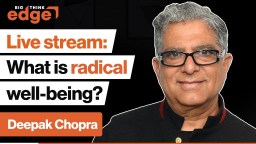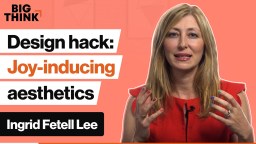health
In his new book, “The Wedge,” Scott Carney tests the boundaries of human resilience.
A recent clinical trial in Brazil highlights the dangers of two potential COVID-19 treatments: chloroquine and hydroxychloroquine.
Don’t let a crisis be wasted. Use this moment to find meaning, purpose, and to refocus on self-care that will improve your mindset and relationships.
▸
with
Why finding joy is more easily attainable than the pursuit of happiness.
▸
9 min
—
with
The smart toilet can analyze urine and stool samples for disease markers and can even recognize an individual user’s “analprint”.
Researchers argue that most coronavirus infections around the world go undetected.
Our lives have been transformed by the coronavirus pandemic. How can we successfully adapt to the new demands and rules of a society that is sheltering in place? What can […]
▸
with
Gyms and fitness centers are closed, but your living room is always open.
How can we promote the creation of new neurons – and why is it so important?
Combining various mindfulness-based interventions (MBIs) can have numerous health benefits, according to new research.
A global brainstorming marathon is throwing together brilliant ideas from around the world to rapidly develop solutions to combat the coronavirus pandemic.
None of us know where this is heading, but we can still learn from the moment.
The health care system isn’t ready for that, either.
Chemical engineers have developed a way to protect transplanted drug-producing cells from immune system rejection.
Research supports wearing surgical face masks to slow the spread of the deadly coronavirus.
How can we track the spread of COVID-19 where testing is not widely available? How can global health be improved by innovation and cooperation? Over the last few years, Kinsa […]
▸
with
Scientifically, it’s referred to as ‘cancer-related cognitive impairment’ or ‘chemotherapy-related cognitive dysfunction’.
A clean work space, plants, and putting on the right pants all make working from home easier, according to science.
The response to the pandemic illustrates five actions we can take to address the global climate change crisis.
Understanding the math behind social distancing.
New research on ankle exoskeletons show promising results.
Flattening the curve on panic and disinformation.
Medical researchers put a ring on it to learn more about the onset of COVID-19.
Economics professor Stephen M. Miller shares his insights in this exclusive interview.
What symptoms to watch for, how to get tested, what to do if you’re sick, and when to go to the doctor.
Facing a shortage of medical resources, doctors in the U.S. may have to make difficult moral decisions over how to allocate care.
A new study shows the benefits of calorie restriction. Never has such advice been more needed.
A new study found that practicing mindfulness can lower feelings of paranoia.
Lawrence “Larry” Brilliant, an American epidemiologist who helped eradicate smallpox, warned about the inevitability of a global pandemic in a now-famous 2006 TED Talk.
Washing your hands with soap and water can help protect against the coronavirus. But only if you do it correctly.





























